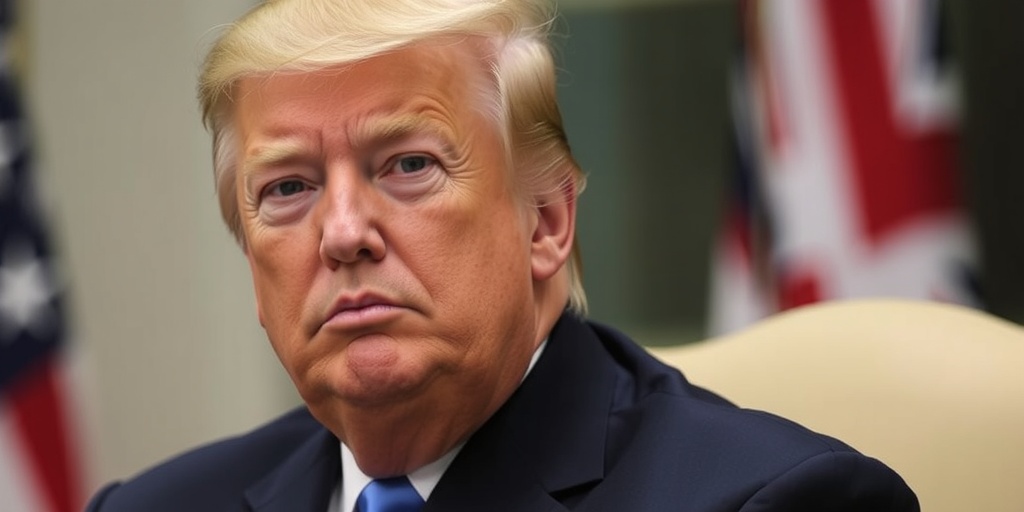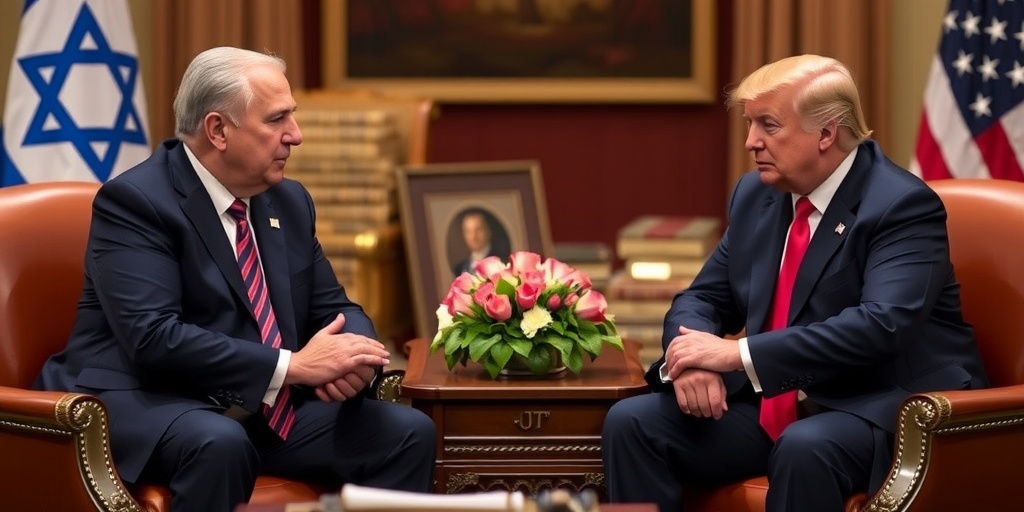Now Reading: Trump’s Cuts to Minority Business Agency May Stifle Job Growth
-
01
Trump’s Cuts to Minority Business Agency May Stifle Job Growth
Trump’s Cuts to Minority Business Agency May Stifle Job Growth

Trump Administration’s Efforts to Dismantle Minority Business Agency Sparks Backlash
The Trump administration’s recent decision to dismantle a vital agency dedicated to supporting minority-owned businesses has raised significant concerns among Democratic lawmakers and nonprofit organizations. Critics argue that this action could adversely impact job growth and hinder businesses that rely heavily on the agency’s resources.
In a sweeping move, President Trump signed an executive order last month aimed at reducing the size of the federal bureaucracy, specifying the dismantling of seven agencies, including the Minority Business Development Agency (MBDA). This agency, housed within the Commerce Department, plays a crucial role in providing funding and technical assistance to minority-owned businesses through more than 35 centers nationwide. Its primary goal is to facilitate access to loans and contracts, helping these businesses thrive in a competitive environment.
According to sources close to the situation, nearly all of the MBDA’s approximately 70 employees were put on administrative leave last month, leaving only three staff members to manage operations. This drastic reduction in workforce has alarmed many who believe that the agency’s capabilities are essential for minority entrepreneurs.
Democratic lawmakers have been vocal in their opposition to the Trump administration’s actions. Senator Tammy Baldwin of Wisconsin recently called for immediate transparency regarding the proposed cuts, urging the administration to disclose the potential impacts on small business owners. In a letter addressed to Commerce Secretary Howard Lutnick, Senators Maria Cantwell of Washington and Lisa Blunt Rochester of Delaware expressed their concerns, warning that the workforce reduction would be "to the detriment of the U.S. economy" and could severely hinder the agency’s ability to fulfill its congressional mandate.
The MBDA has a history of empowering minority-owned businesses, having assisted entrepreneurs in securing access to over $1.5 billion in capital and helping to create or retain around 23,000 jobs in the last fiscal year, as reported in the agency’s annual performance report. Proponents of the agency fear that its dismantling will disproportionately affect minority-owned businesses, which already face numerous barriers to capital, including limited access to networks and expertise.
Marc H. Morial, president and CEO of the National Urban League, voiced his concerns, stating, "Its demise is troubling. These businesses now, in order to find these services elsewhere, will either have to pay for them or go without them." The implications of such a reduction could set back progress for minority entrepreneurs, who often encounter systemic disadvantages in the financing landscape.
The MBDA was established in 1969 by President Richard Nixon as the Office of Minority Business Enterprise and became a permanent fixture within the federal structure, receiving approximately $70 million in funding last year. Its recent expansion was achieved through a bipartisan infrastructure bill signed into law by President Joe Biden in 2021, which aimed to enhance the competitiveness and growth of minority-owned businesses. The dismantling of the MBDA is viewed as part of the Trump administration’s broader agenda to diminish initiatives related to diversity and inclusion, which the president has described as necessary to create a "colorblind and merit-based" society.
The agency has also been involved in legal controversies, including a federal judge’s ruling last year that mandated it to offer services to individuals of all racial and ethnic backgrounds. This decision was issued after a case brought by three white business owners who claimed that the agency’s focus on minority assistance was unconstitutional.
On the other hand, some fiscal conservatives support the closure of the agency, suggesting that any such decision should be made through legislation rather than executive action. Chris Edwards, an economist at the libertarian Cato Institute, argued that while he believes the agency should be phased out, it should follow a more measured approach that ensures fair treatment for employees.
Some leaders within nonprofit organizations, which have benefited from MBDA grants, are understandably concerned about the potential reductions in federal funding following the administration’s actions. Lamar Heystek, president of ASIAN Inc., a nonprofit that operates one of the agency’s business centers in San Jose, California, expressed worry that a decrease in federal funds would lead to reduced capacity to assist minority businesses in developing business plans, securing financing, and acquiring contracts in both public and private sectors.
Heystek stated, "If federal officials try to cut off our funding, we will have to reduce the number of staff providing technical assistance, which would ultimately result in fewer businesses being served." He characterized the executive order as a "reckless assault on the economic progress of all Americans," emphasizing that the consequences of such drastic measures will be felt by communities across the nation.
As discussions continue regarding the future of the MBDA and the implications of its dismantling, many advocates for minority-owned businesses remain hopeful that public outcry and bipartisan dialogue can lead to a more favorable resolution that supports diversity and economic growth for all segments of society.
Stay Informed With the Latest & Most Important News
Previous Post
Next Post
-
 01New technology breakthrough has everyone talking right now
01New technology breakthrough has everyone talking right now -
 02Unbelievable life hack everyone needs to try today
02Unbelievable life hack everyone needs to try today -
 03Fascinating discovery found buried deep beneath the ocean
03Fascinating discovery found buried deep beneath the ocean -
 04Man invents genius device that solves everyday problems
04Man invents genius device that solves everyday problems -
 05Shocking discovery that changes what we know forever
05Shocking discovery that changes what we know forever -
 06Internet goes wild over celebrity’s unexpected fashion choice
06Internet goes wild over celebrity’s unexpected fashion choice -
 07Rare animal sighting stuns scientists and wildlife lovers
07Rare animal sighting stuns scientists and wildlife lovers





















